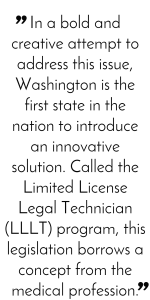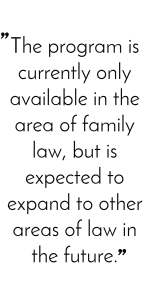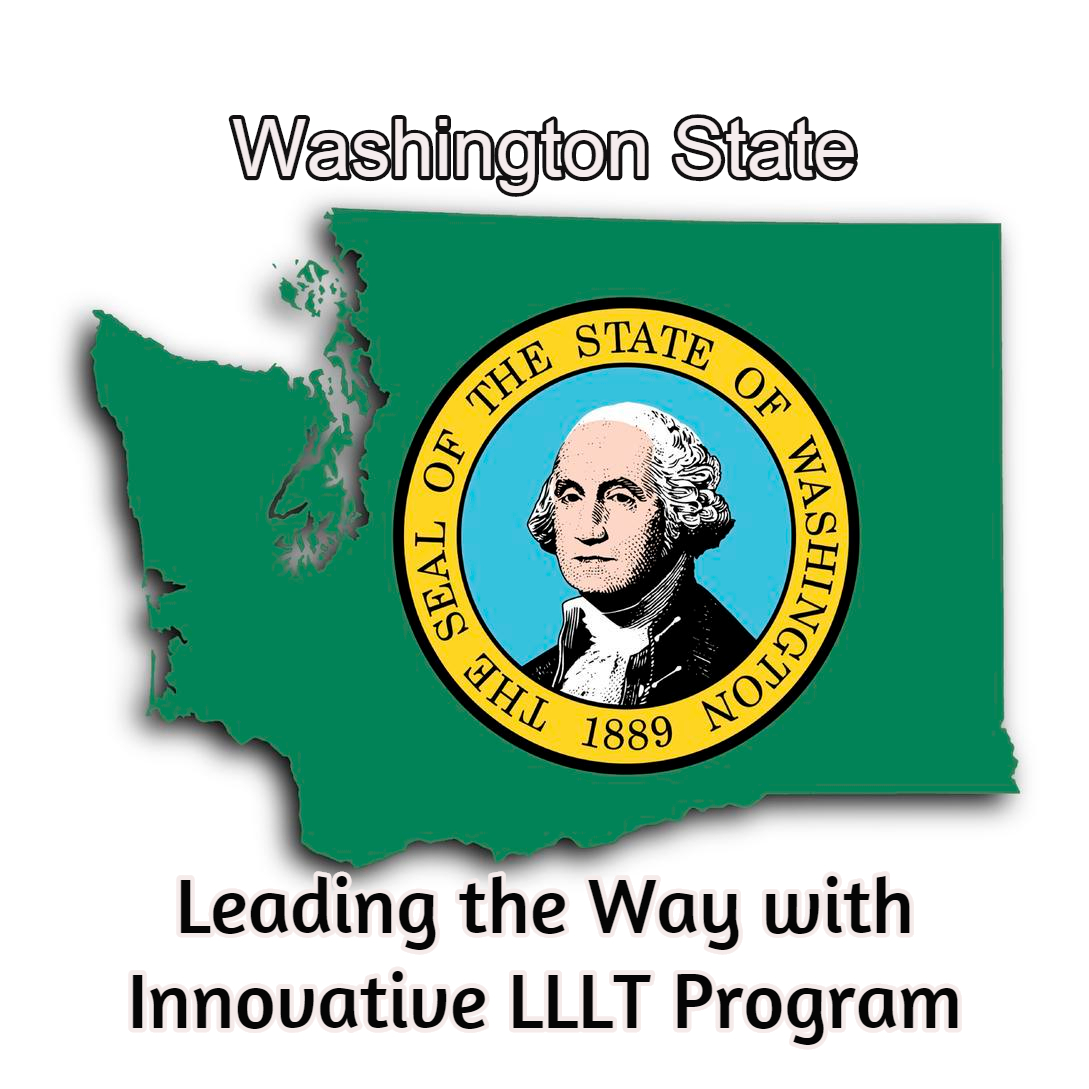Civil justice issues are a common problem for many Americans. From dealing with family issues such as divorce and child custody to responding to lawsuits, the complexities involve issues normally requiring the assistance of a lawyer. However, according to various studies, 80 to 90 percent of those in low-income brackets facing civil legal problems never receive that essential legal assistance. In fact, Risa Kaufman, a Columbia law professor, calls the lack of access to legal assistance a “human rights crisis.”
Washington State’s Limited License Legal Technicians Concept
 In a bold and creative attempt to address this issue, Washington is the first state in the nation to introduce an innovative solution. Called the Limited License Legal Technician (LLLT) program, this legislation borrows a concept from the medical profession. When the medical community faced a similar crisis in the 1970’s, additional provider roles were created. Now, providers such as Nurse practitioners commonly help ensure broader access to health care by taking on many of the basic procedures normally performed by an M.D. ARNP’s operate independently and efficiently to clear out the backlog of more common medical issues in many practices and areas.
In a bold and creative attempt to address this issue, Washington is the first state in the nation to introduce an innovative solution. Called the Limited License Legal Technician (LLLT) program, this legislation borrows a concept from the medical profession. When the medical community faced a similar crisis in the 1970’s, additional provider roles were created. Now, providers such as Nurse practitioners commonly help ensure broader access to health care by taking on many of the basic procedures normally performed by an M.D. ARNP’s operate independently and efficiently to clear out the backlog of more common medical issues in many practices and areas.
Similarly, the LLLT helps clients with a number of routine but vital legal needs. They can assist clients in conducting legal research, filing court documents, and responding to legal filings from others. According to the executive director of the Washington State Bar Association, Paula Littlewood, “(The LLLT program) will save time and heartache. It’s groundbreaking.
Addressing a Growing Problem
Accessing affordable legal assistance is an increasingly challenging problem for the poor and those with limited to moderate incomes. The hourly rates for lawyers are often out of reach for those of moderate means. Additionally, the traditional resources for these families, primarily legal aid offices, are losing funding, limiting services, and closing in many areas.
 To counter this trend, the Washington state created the limited license legal technician profession. The program is currently only available in the area of family law, but is expected to expand to other areas of law in the future. An individual pursuing this license must have a paralegal degree from an ABA approved law school, unless the prospective LLLT qualifies under the limited time waiver. The waiver allows those with substantial legal experience a time limited opportunity to apply for the LLLT program based on their work history.
To counter this trend, the Washington state created the limited license legal technician profession. The program is currently only available in the area of family law, but is expected to expand to other areas of law in the future. An individual pursuing this license must have a paralegal degree from an ABA approved law school, unless the prospective LLLT qualifies under the limited time waiver. The waiver allows those with substantial legal experience a time limited opportunity to apply for the LLLT program based on their work history.
Additionally, a LLLT must complete roughly a year of special classes at an approved university or community college and take a licensing exam. Upon passing and completing at least 3,000 hours of substantive law related work experience supervised by a lawyer (the 3,000 hours must be within 3 years before or after passing the exam), they are able to work independently with clients. By saving potentially hundreds of thousands of dollars in legal education costs, these LLLTs are able to charge significantly lower fees for their work.
The concept of the LLLT program has created a lot of discussion among the legal community – both negative and positive. Despite the expected resistance, the American Bar Association itself recommended in the final report of its 2014 Task Force on the Future of Legal Education, that states consider licensing “persons other than holders of a JD to deliver limited legal services.” The entire concept is now under review by the ABA’s Commission on the Future of Legal Services.
The success of this program is being followed closely by many in California, New Mexico, Oregon, Colorado, and other states. Seen as a potentially trans-formative way to provide necessary legal assistance, this program may spread rapidly throughout the country.


